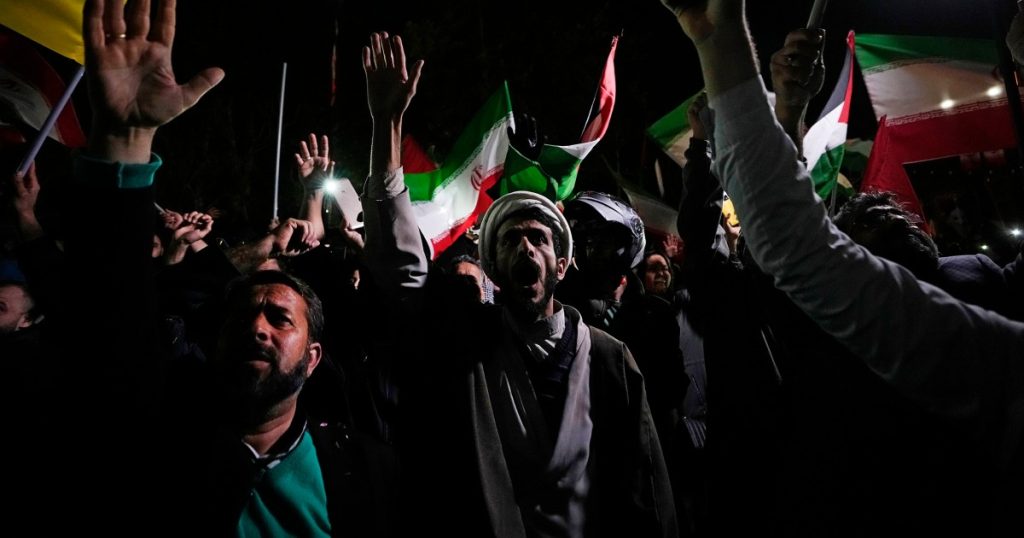Tensions between Iran and Israel have been on the rise after a series of events culminating in an attack on Tehran’s consulate in Syria by Israel. In response, Iran launched retaliatory missile strikes over the weekend, but deliberately avoided targeting U.S. facilities, signaling its desire to avoid further escalation that could lead to a regional war. Tehran framed its strikes as a legitimate reaction to Israel’s actions, while some Iranian officials hinted at the desire to establish a new equation with Israel.
Israel and Iran have a long history of enmity dating back to the Islamic Revolution in the late 1970s. Both countries have accused each other of supporting terrorist organizations and have engaged in covert operations against each other. Iran often targets Israel through its proxies, such as Hezbollah in Lebanon. However, the recent direct attacks by Iran on Israel mark a significant escalation in the conflict between the two countries. Israel has successfully defended itself against Iran’s recent missile strikes, leading some analysts to view Tehran’s actions as a display of weakness.
The hostilities between Iran and Israel have never reached the level of direct military confrontation, with both countries resorting to clandestine operations and proxy warfare instead. Iran has denied involvement in the recent Hamas attack on Israel, but both the U.S. and Israel accuse Tehran of arming and training militants for such operations. Israel’s decision to target Iranian officers in Damascus was seen as a response to Iran’s failed deterrence efforts, leading to further escalation in the conflict.
The U.S. government has expressed concerns over potential Israeli retaliation against Iran and has emphasized that it will not participate in any offensive operations against Tehran. Western leaders are urging Israel to exercise restraint and consider the consequences of its actions to prevent the conflict from escalating further. Iran sees its missile arsenal as a key deterrent against its adversaries, but Israel’s effective defense against Iranian projectiles has raised doubts about Tehran’s military capabilities.
The recent events have pushed the region into uncharted territory, with the traditional rules of engagement no longer applying. The conflict between Iran and Israel has intensified, with each side vowing vengeance for past incidents. Iran’s decision to directly strike Israel at home represents a significant shift in its approach to the conflict. Moving forward, it remains to be seen how Israel will respond to Iran’s recent attacks and whether the conflict will continue to escalate.
Overall, the situation in the Middle East between Iran and Israel is highly volatile, with both countries engaged in a complex web of hostilities. The recent attacks and counterattacks signal a dangerous escalation in the conflict, raising concerns about the potential for a broader regional war. The future trajectory of the Iran-Israel conflict will depend on the actions taken by both countries and their allies in the region, as well as on the willingness of international actors to intervene and prevent further escalation.


